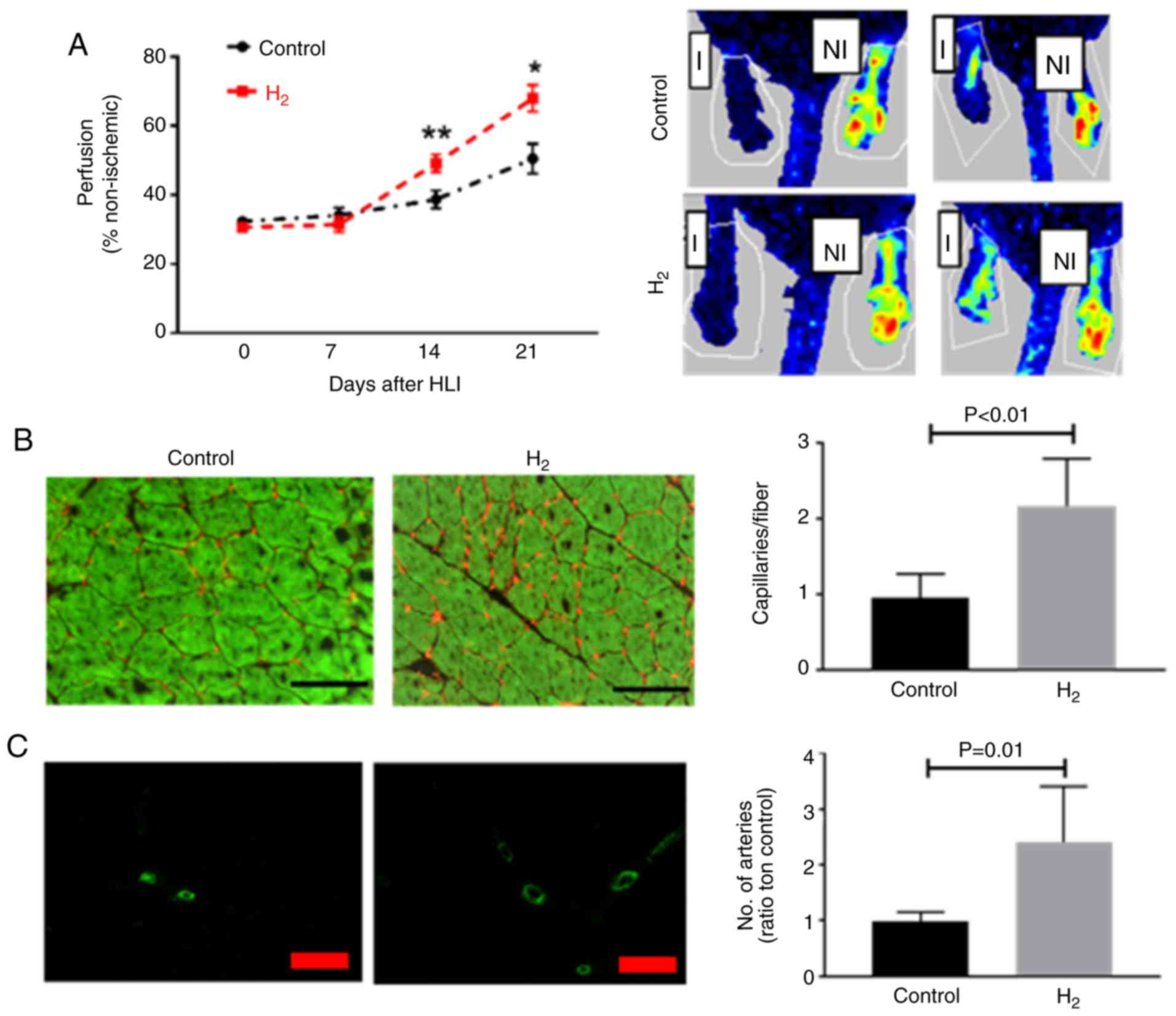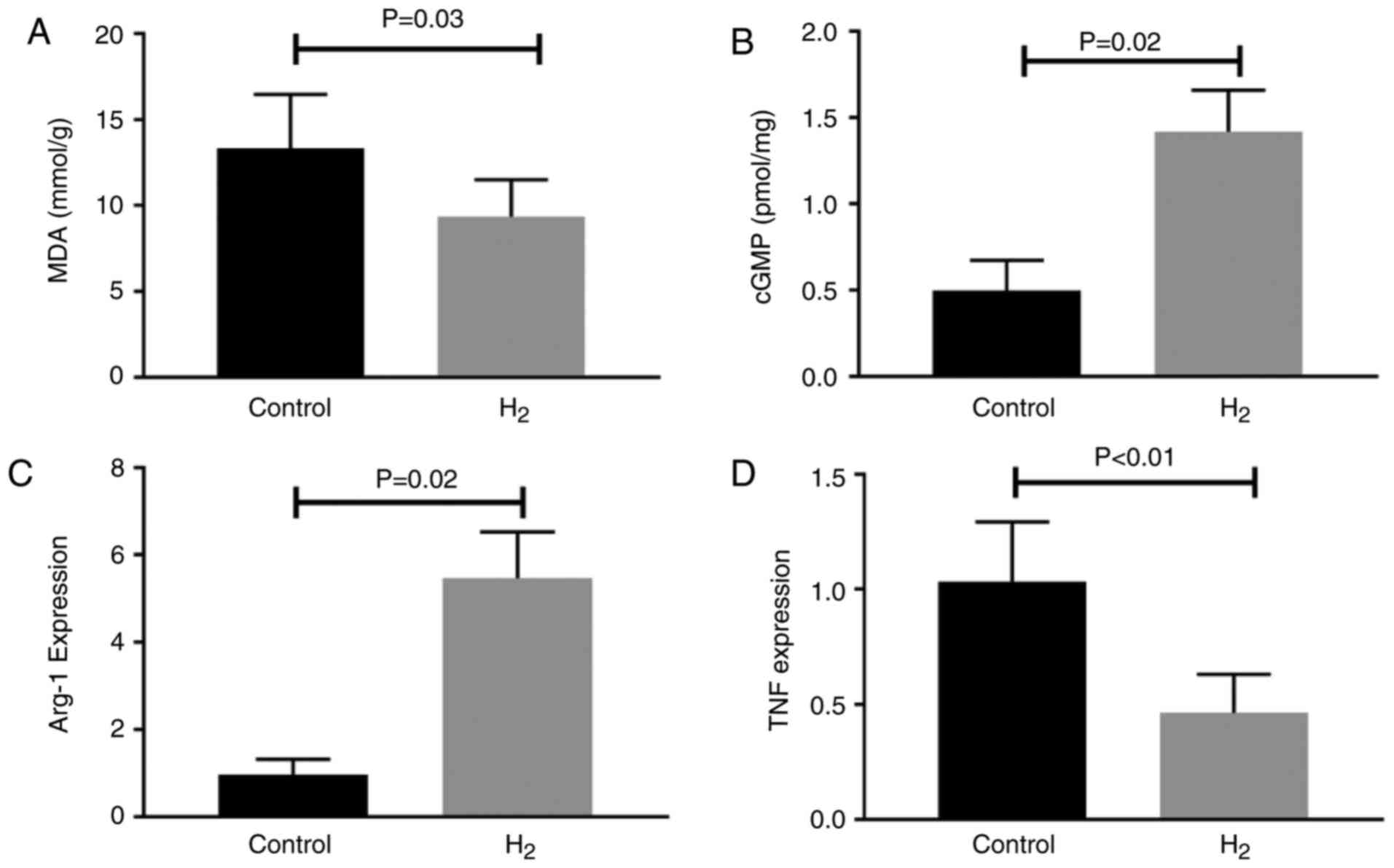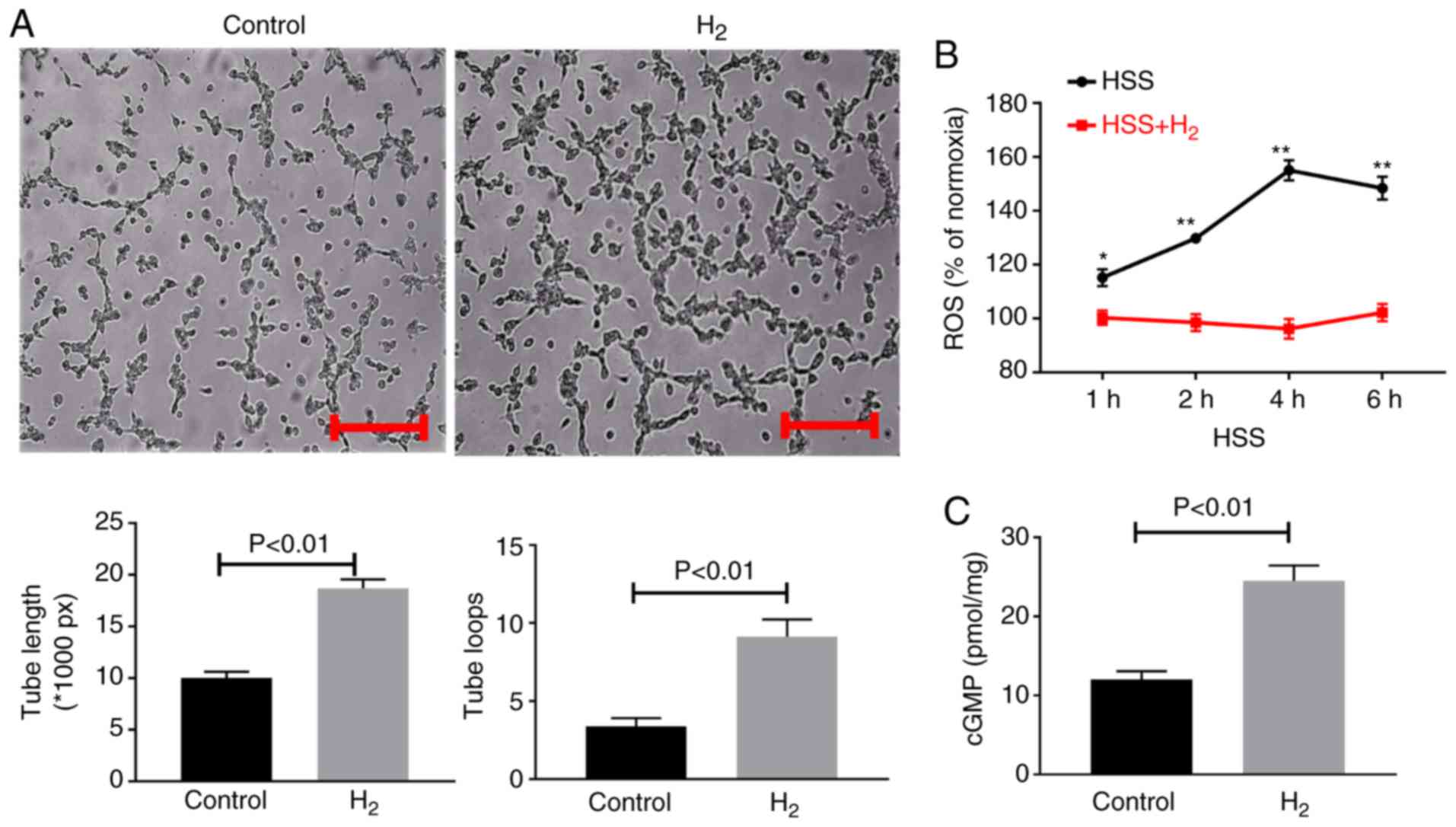|
1
|
Guerchet M, Aboyans V, Mbelesso P, Mouanga
AM, Salazar J, Bandzouzi B, Tabo A, Clément JP, Preux PM and
Lacroix P: Epidemiology of peripheral artery disease in elder
general population of two cities of Central Africa: Bangui and
Brazzaville. Eur J Vasc Endovasc Surg. 44:164–169. 2012. View Article : Google Scholar : PubMed/NCBI
|
|
2
|
Criqui MH and Aboyans V: Epidemiology of
peripheral artery disease. Circ Res. 116:1509–1526. 2015.
View Article : Google Scholar : PubMed/NCBI
|
|
3
|
Fowkes FG, Aboyans V, Fowkes FJ, McDermott
MM, Sampson UK and Criqui MH: Peripheral artery disease:
Epidemiology and global perspectives. Nat Rev Cardiol. 14:156–170.
2017. View Article : Google Scholar : PubMed/NCBI
|
|
4
|
Annex BH and Beller GA: Towards the
development of novel therapeutics for peripheral artery disease.
Trans Am Clin Climatol Assoc. 127:224–234. 2016.PubMed/NCBI
|
|
5
|
Ko SH and Bandyk DF: Therapeutic
angiogenesis for critical limb ischemia. Semin Vasc Surg. 27:23–31.
2014. View Article : Google Scholar : PubMed/NCBI
|
|
6
|
Annex BH: Therapeutic angiogenesis for
critical limb ischaemia. Nat Rev Cardiol. 10:387–396. 2013.
View Article : Google Scholar : PubMed/NCBI
|
|
7
|
Gardner AW, Montgomery PS, Zhao YD,
Silva-Palacios F, Ungvari Z, Csiszar A and Sonntag WE: Association
between daily walking and antioxidant capacity in patients with
symptomatic peripheral artery disease. J Vasc Surg. 65:1762–1768.
2017. View Article : Google Scholar : PubMed/NCBI
|
|
8
|
Loffredo L, Marcoccia A, Pignatelli P,
Andreozzi P, Borgia MC, Cangemi R, Chiarotti F and Violi F:
Oxidative-stress-mediated arterial dysfunction in patients with
peripheral arterial disease. Eur Heart J. 28:608–612. 2007.
View Article : Google Scholar : PubMed/NCBI
|
|
9
|
Loffredo L, Pignatelli P, Cangemi R,
Andreozzi P, Panico MA, Meloni V and Violi F: Imbalance between
nitric oxide generation and oxidative stress in patients with
peripheral arterial disease: Effect of an antioxidant treatment. J
Vasc Surg. 44:525–530. 2006. View Article : Google Scholar : PubMed/NCBI
|
|
10
|
Muller MD, Drew RC, Blaha CA, Mast JL, Cui
J, Reed AB and Sinoway LI: Oxidative stress contributes to the
augmented exercise pressor reflex in peripheral arterial disease
patients. J Physiol. 590:6237–6246. 2012. View Article : Google Scholar : PubMed/NCBI
|
|
11
|
Kim HW, Lin A, Guldberg RE, Ushio-Fukai M
and Fukai T: Essential role of extracellular SOD in reparative
neovascularization induced by hindlimb ischemia. Circ Res.
101:409–419. 2007. View Article : Google Scholar : PubMed/NCBI
|
|
12
|
Saqib A, Prasad KM, Katwal AB, Sanders JM,
Lye RJ, French BA and Annex BH: Adeno-associated virus serotype
9-mediated overexpression of extracellular superoxide dismutase
improves recovery from surgical hind-limb ischemia in BALB/c mice.
J Vasc Surg. 54:810–818. 2011. View Article : Google Scholar : PubMed/NCBI
|
|
13
|
Ohsawa I, Ishikawa M, Takahashi K,
Watanabe M, Nishimaki K, Yamagata K, Katsura K, Katayama Y, Asoh S
and Ohta S: Hydrogen acts as a therapeutic antioxidant by
selectively reducing cytotoxic oxygen radicals. Nat Med.
13:688–694. 2007. View
Article : Google Scholar : PubMed/NCBI
|
|
14
|
Shui M, Liu X, Zhu Y and Wang Y: Exogenous
hydrogen sulfide attenuates cerebral ischemia-reperfusion injury by
inhibiting autophagy in mice. Can J Physiol Pharmacol.
94:1187–1192. 2016. View Article : Google Scholar : PubMed/NCBI
|
|
15
|
Wang X, Zhang L, Zhao W and Liu T: The
protective effects of hydrogen on HO-1 expression in the brainafter
focal cerebral ischemia reperfusion in rats. Turk J Med Sci.
46:1534–1539. 2016. View Article : Google Scholar : PubMed/NCBI
|
|
16
|
Zhang X, Liu J, Jin K, Xu H, Wang C, Zhang
Z, Kong M, Zhang Z, Wang Q and Wang F: Subcutaneous injection of
hydrogen gas is a novel effective treatment for type 2 diabetes. J
Diabetes Investig. 9:83–90. 2018. View Article : Google Scholar : PubMed/NCBI
|
|
17
|
Hazarika S, Farber CR, Dokun AO,
Pitsillides AN, Wang T, Lye RJ and Annex BH: MicroRNA-93 controls
perfusion recovery after hindlimb ischemia by modulating expression
of multiple genes in the cell cycle pathway. Circulation.
127:1818–1828. 2013. View Article : Google Scholar : PubMed/NCBI
|
|
18
|
Dokun AO, Keum S, Hazarika S, Li Y,
Lamonte GM, Wheeler F, Marchuk DA and Annex BH: A quantitative
trait locus (LSq-1) on mouse chromosome 7 is linked to the absence
of tissue loss after surgical Hindlimb ischemia. Circulation.
117:1207–1215. 2008. View Article : Google Scholar : PubMed/NCBI
|
|
19
|
Kishimoto Y, Kato T, Ito M, Azuma Y,
Fukasawa Y, Ohno K and Kojima S: Hydrogen ameliorates pulmonary
hypertension in rats by anti-inflammatory and antioxidant effects.
J Thorac Cardiovasc Surg. 150:645–654, e3. 2015. View Article : Google Scholar : PubMed/NCBI
|
|
20
|
Nakai Y, Sato B, Ushiama S, Okada S, Abe K
and Arai S: Hepatic oxidoreduction-related genes are upregulated by
administration of hydrogen-saturated drinking water. Biosci
Biotechnol Biochem. 75:774–776. 2011. View Article : Google Scholar : PubMed/NCBI
|
|
21
|
Hazarika S, Dokun AO, Li Y, Popel AS,
Kontos CD and Annex BH: Impaired angiogenesis after Hindlimb
ischemia in type 2 diabetes Mellitus: Differential regulation of
vascular endothelial growth factor receptor 1 and soluble vascular
endothelial growth factor receptor 1. Circ Res. 101:948–956. 2007.
View Article : Google Scholar : PubMed/NCBI
|
|
22
|
Meisner JK, Song J, Annex BH and Price RJ:
Myoglobin overexpression inhibits reperfusion in the ischemic mouse
hindlimb through impaired angiogenesis but not arteriogenesis. Am J
Pathol. 183:1710–1718. 2013. View Article : Google Scholar : PubMed/NCBI
|
|
23
|
Papastergiadis A, Mubiru E, Van Langenhove
H and De Meulenaer B: Malondialdehyde measurement in oxidized
foods: Evaluation of the spectrophotometric thiobarbituric acid
reactive substances (TBARS) test in various foods. J Agric Food
Chem. 60:9589–9594. 2012. View Article : Google Scholar : PubMed/NCBI
|
|
24
|
Denninger JW and Marletta MA: Guanylate
cyclase and the. NO/cGMP signaling pathway. Biochim Biophys Acta.
1411:334–350. 1999. View Article : Google Scholar : PubMed/NCBI
|
|
25
|
Hazarika S, Angelo M, Li Y, Aldrich AJ,
Odronic SI, Yan Z, Stamler JS and Annex BH: Myocyte specific
overexpression of myoglobin impairs angiogenesis after hind-limb
ischemia. Arterioscl Throm Vas Biol. 28:2144–2150. 2008. View Article : Google Scholar
|
|
26
|
Livak KJ and Schmittgen TD: Analysis of
relative gene expression data using real-time quantitative PCR and
the 2(-Delta Delta C(T)) method. Methods. 25:402–408. 2001.
View Article : Google Scholar : PubMed/NCBI
|
|
27
|
Wang T, Cunningham A, Dokun AO, Hazarika
S, Houston K, Chen L, Lye RJ, Spolski R, Leonard WJ and Annex BH:
Loss of interleukin-21 receptor activation in hypoxic endothelial
cells impairs perfusion recovery after hindlimb ischemia.
Arterioscl Throm Vas Biol. 35:1218–1225. 2015. View Article : Google Scholar
|
|
28
|
Wu D and Yotnda P: Production and
detection of reactive oxygen species (ROS) in cancers. J Vis Exp.
pii: 3357. 2011.doi: 10.3791/3357. View
Article : Google Scholar
|
|
29
|
Pirinccioglu AG, Gokalp D, Pirinccioglu M,
Kizil G and Kizil M: Malondialdehyde (MDA) and protein carbonyl
(PCO) levels as biomarkers of oxidative stress in subjects with
familial hypercholesterolemia. Clin Biochem. 43:1220–1224. 2010.
View Article : Google Scholar : PubMed/NCBI
|
|
30
|
Murohara T and Asahara T: Nitric oxide and
angiogenesis in cardiovascular disease. Antioxid Redox Signal.
4:825–831. 2002. View Article : Google Scholar : PubMed/NCBI
|
|
31
|
Nakayama M, Itami N, Suzuki H, Hamada H,
Osaka N, Yamamoto R, Tsunoda K, Nakano H, Watanabe K, Zhu WJ, et
al: Possible clinical effects of molecular hydrogen (H2) delivery
during hemodialysis in chronic dialysis patients: Interim analysis
in a 12 month observation. PLoS One. 12:e01845352017. View Article : Google Scholar : PubMed/NCBI
|
|
32
|
Nishimaki K, Asada T, Ohsawa I, Nakajima
E, Ikejima C, Yokota T, Kamimura N and Ohta S: Effects of molecular
hydrogen assessed by an animal model and a randomized clinical
study on mild cognitive impairment. Curr Alzheimer Res. 15:482–492.
2018. View Article : Google Scholar : PubMed/NCBI
|
|
33
|
Schleicher M, Yu J, Murata T, Derakhshan
B, Atochin D, Qian L, Kashiwagi S, Di Lorenzo A, Harrison KD, Huang
PL and Sessa WC: The Akt1-eNOS axis illustrates the specificity of
kinase-substrate relationships in vivo. Sci Signal. 2:ra412009.
View Article : Google Scholar : PubMed/NCBI
|
|
34
|
Pacher P, Beckman JS and Liaudet L: Nitric
oxide and peroxynitrite in health and disease. Physiol Rev.
87:315–424. 2007. View Article : Google Scholar : PubMed/NCBI
|
|
35
|
Ohta S: Hydrogen gas and hydrogen water
act as a therapeutic and preventive antioxidant with a novel
concept. Nihon Ronen Igakkai Zasshi. 45:355–362. 2008.(In
Japanese). PubMed/NCBI
|
|
36
|
Takeda Y, Costa S, Delamarre E, Roncal C,
de Oliveira Leite R, Squadrito ML, Finisguerra V, Deschoemaeker S,
Bruyère F, Wenes M, et al: Macrophage skewing by Phd2
haplodeficiency prevents ischaemia by inducing arteriogenesis.
Nature. 479:122–126. 2011. View Article : Google Scholar : PubMed/NCBI
|
|
37
|
Covarrubias A, Byles V and Horng T: ROS
sets the stage for macrophage differentiation. Cell Res.
23:984–985. 2013. View Article : Google Scholar : PubMed/NCBI
|


















